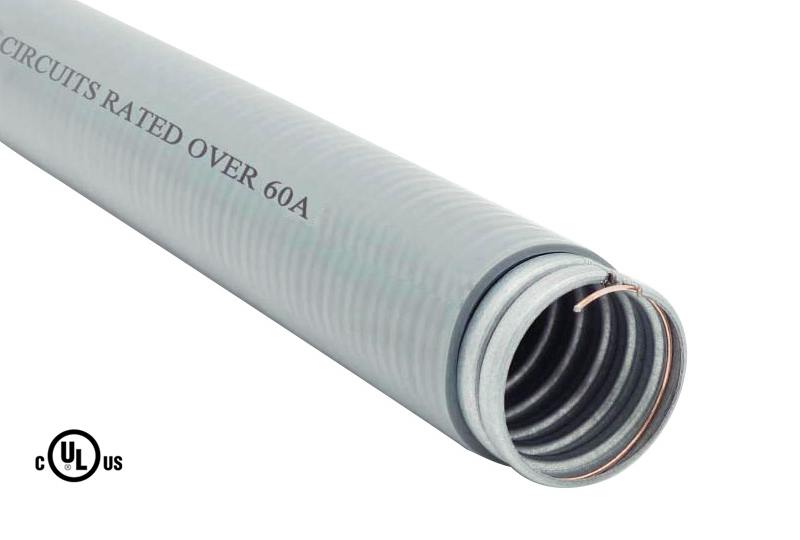Nov. 09, 2022
Conduit is the pipe used to enclose and protect the electrical wires that supply power to a home or building. So do you know what types of conduit are available?

Types of conduit
Flexible metal conduit can be easily bent and can pass through walls effortlessly. However, they are not suitable for areas susceptible to moisture due to the lack of a waterproof protective jacket. It is recommended for use indoors in dry areas because it is not liquid-tight. Its flexibility and lighter weight make it easier to install than rigid conduit. It is often used in interior walls, cubicles and office ceilings in houses and office buildings (for connecting power to light fixtures).
Liquid-tight, flexible, metallic conduit (LFMC) is often covered with a waterproof plastic coating to protect against moisture. Its flexibility allows it to be used in tightly curved areas where it is difficult to install rigid conduit. Typical uses include bridges, underground, paper mills, petrochemical facilities, and water treatment plants.
Liquid-tight, flexible, non-metallic conduit (LFNC) is suitable for use in dry, wet or oily locations. It can be used in indoor or outdoor environments for industrial and commercial applications. Typical uses include in-ground, HVAC installations, swimming pools and spas.
Rigid PVC and thermoset resin conduit is the lightest conduit material and the least expensive conduit option. It is used to protect electrical wiring from moisture and dirt. It is corrosion resistant, moisture resistant and non-conductive. It is used outdoors and underground. It is commonly used for lawn irrigation control and swimming pools.
What Should I Consider Before Installing Electrical Conduit?
Local Safety Codes
Although the National Electrical Code describes conduit installation under operating conditions, local inspectors may provide guidance to save money and time in installing, inspecting and approving wiring and conduit installations.
Fitting Size
The diameter of the fitting must match the diameter of the selected conduit to provide a secure and leak-free connection.
Time of Use
If the conduit will only be used until the next retrofit project, you can purchase less durable, lower cost conduit and fitting options.
Installation Conditions
Conduits are made from a variety of materials, both metallic and non-metallic, to resist intrusion, corrosion and fluids. Fittings should be equally durable. For liquid-tight conduits, choose liquid-tight fittings with seals and gaskets.
If you have a need to purchase conduits, please feel free to contact us.

















